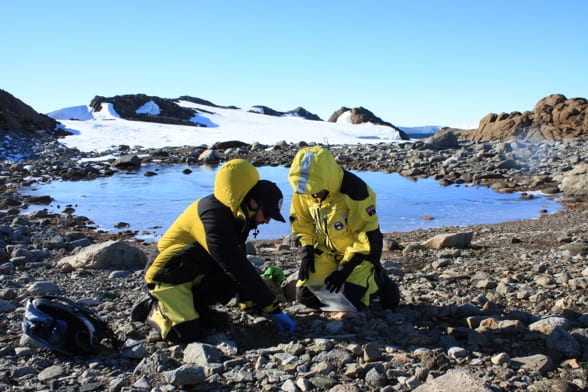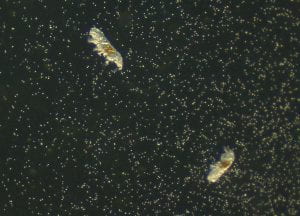
Collaborating with CAPIM as a student researcher
Jordan McCarthy is a final year PhD student. His project is part of a joint grant with researchers at the Australian Antarctic Division, RMIT University, and Western Sydney University investigating the impacts of soil pollution on new species of terrestrial Antarctic rotifers and tardigrades not previously used in lab studies. The research includes developing culturing techniques, recording their life history traits, and developing and conducting ecotoxicological tests.
Through CAPIM Jordon has had the opportunity to collaborate with a wide-ranging team of experts in soil invertebrate biology and ecology, analytical chemistry, aquatic and terrestrial ecotoxicology, and soil science. This has included support for lab visits to Western Sydney University getting hands-on experience with techniques for extracting micro invertebrates from soils and a lab visit to the Australian Antarctic Division in Hobart to setup a soil nematode ecotox test and learn more about the specific considerations when working with Antarctic species.
Reflecting on his experience as part of CAPIM Jordan says
“I’ve found it very useful to get differing perspectives on my work as it’s progressed. Feedback on drafts and chapters is very different depending on the lens through which the work is viewed whether that be expertise or industry. My collaborators in government at the Antarctic Division put emphasis on certain data or discussion points, while my collaborator with an analytical chemistry background highlights other points. As a whole, I think working with a varied team has made substantial contributions to the quality of work, and my development as an independent researcher”.
Click here to access Jordan’s PhD paper examining how rotifers from soil and moss collected from around Casey station in Antarctica responded to copper.
 |

Photo: “T-active…”: Terrestrial Antarctic tardigrade Hypsibiidae spp. in culture (50x magnification ). Jordan McCarthy 2021
Categories